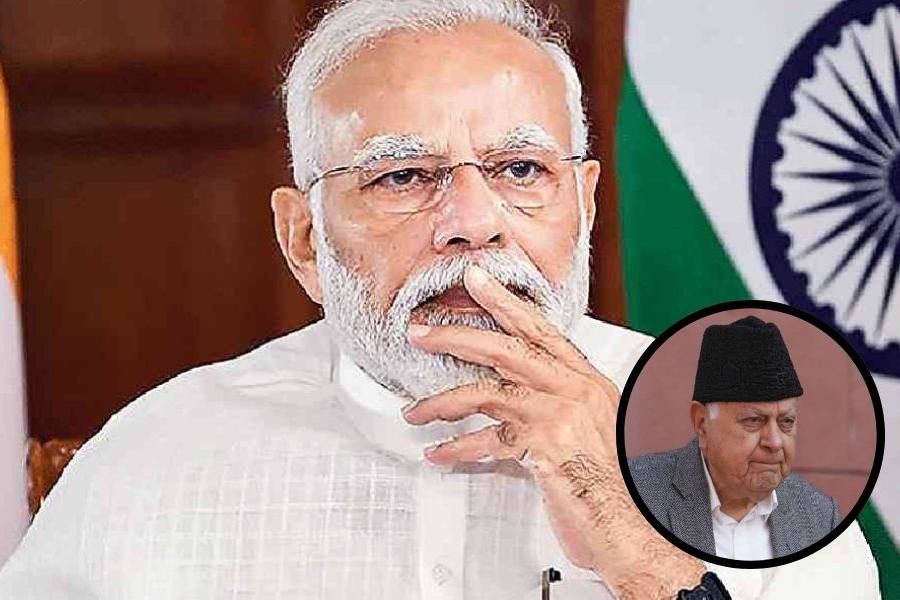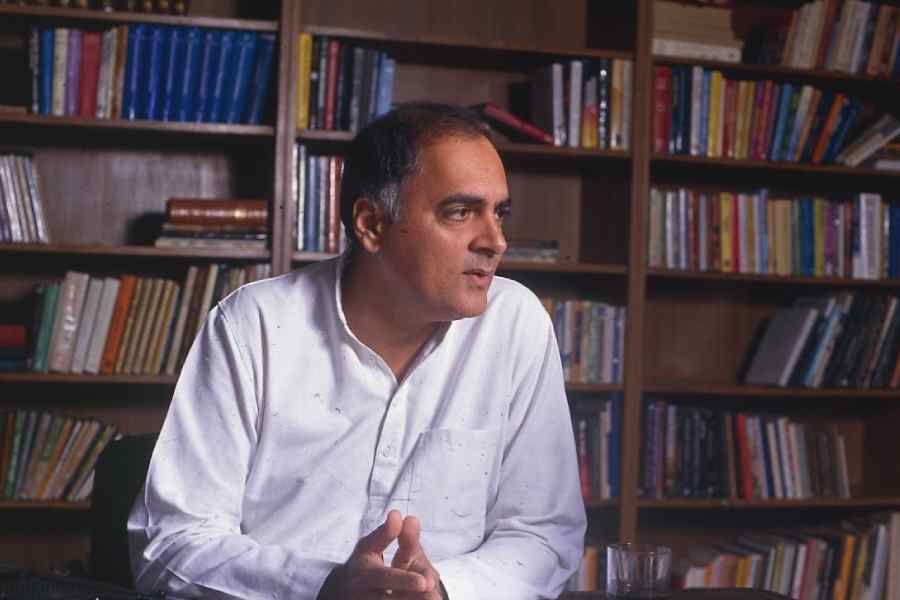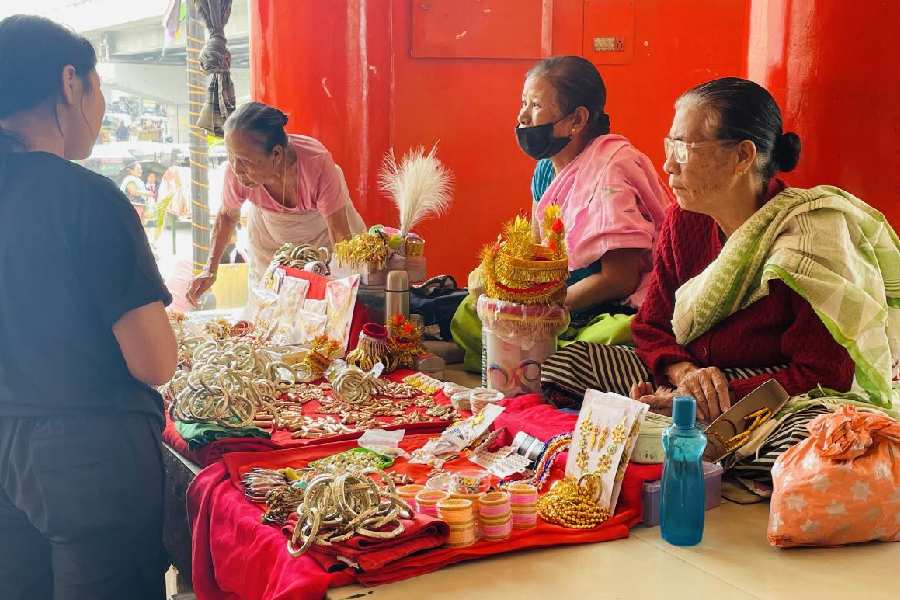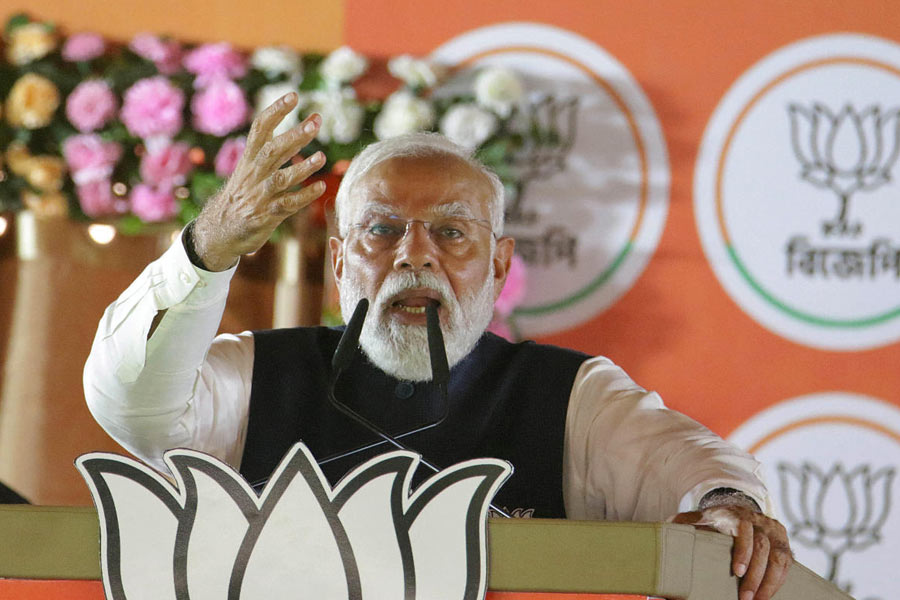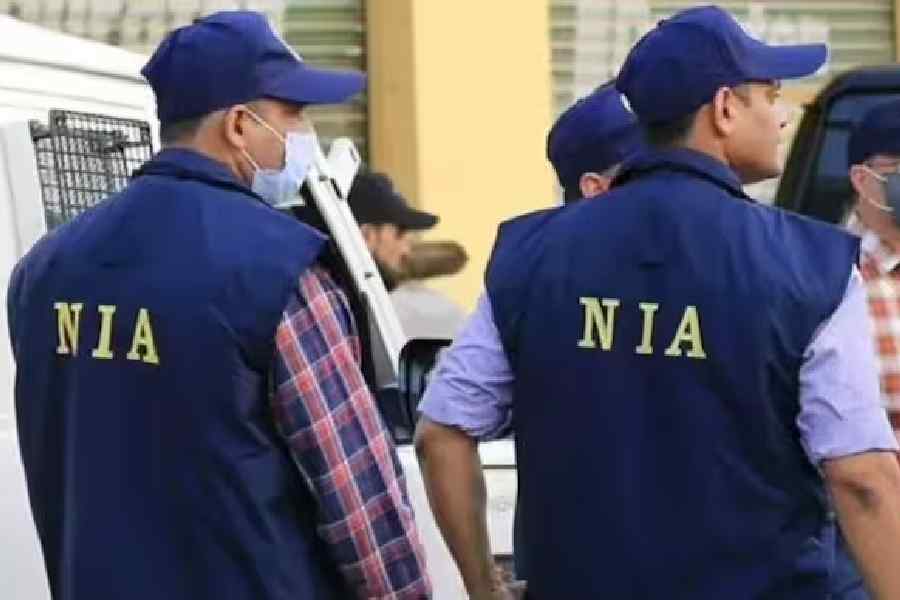I may be a writer of obscene stories, a clown, but I am also a husband and a father. — Saadat Hasan Manto
Nandita Das’s biopic focuses on the two main aspects of Manto’s life — anti-establishment rebel with a cause and writer — but the bit that warms the heart in this 117-minute film is the picture of Manto as a family man. A doting father who plays hide-and-seek with his daughters and a devoted husband who irons his wife’s clothes.
Nawazuddin Siddiqui is the life of Manto, bringing out both the idealism of a man committed to the truth and the desperation that arises when he discovers that speaking from the heart doesn’t always pay. Nawaz embodies two Mantos. The fearless writer in pre-Partition India who is advised by friends and family to write on the atrocities inflicted by the British, but is more interested in penning the trials and tribulations of those he feels deeply for, even if it makes others uncomfortable.
“Hum wahaan jaa sakte hain lekin unke baare mein likh nahin sakte?” he asks heatedly about sex workers — who he wrote extensively on — early on in the film. The scene is filmed at a bar in the Bombay of ’40s where Manto, his wife Safiya (Rasika Dugal, who is delightfully restrained), writer Ismat Chughtai (played with trademark ease by Sacred Games actor Rajshri Deshpande), writer Krishan Chander and actor Ashok Kumar engage in friendly banter. It’s a scene shorn of any artifice and Nandita makes it a beautiful moment between a couple of friends, and yet it feels momentous and an important conversation in the context of the country’s political climate — in the ’40s and now.
The other Manto is the one we see in the latter half of the film. Forced to leave India after Partition, here’s a broken man who quickly hits the bottle, neglects his family and spends most of his days defending himself in court against charges of obscenity in his writings. Nawaz brings in a stark contrast between the two sides of the man, with your heart going out to him in that one scene where he meets his film star friend Shyam (a confident Tahir Raj Bhasin) in Lahore and asks him wistfully, “Aur mera Bambai kaisa hai?”
Even as she covers a large part of Manto’s life, some focused and some a trifle too sweeping, Nandita — with editor Sreekar Prasad — excels in the bits where she seamlessly weaves Manto’s works into the narrative.
The film starts off with his popular short Dus Rupay, a poignant tale of innocence lost; it moves on to Khol Do, a hard-hitting short on the psyche of a rape survivor, with Thanda Gosht — the short branded as “obscene” and which Manto spends a large part of the film defending — proving to be the most stark in tone and treatment. However, Toba Tek Singh, which comes in at the end of the film, could have been placed better, its context somewhat lost in the film.
Manto also scores with its cameos, with most slipping in and out in just one scene yet making a mark with their presence. Rishi Kapoor is delightful as a sleazy film producer, while Ranvir Shorey and Divya Dutta are inhibition-free as the couple in Thanda Gosht. The interactions between Manto and Safiya — there’s a scene early on in a park that will bring on a smile — are the heartbeat of the film. Kartik Narayan’s camerawork deserves special praise, with that silhouette shot of Manto, Safiya and their daughters staring at the fireworks in the sky on the night India gains independence.
However, even at less than two hours, Manto feels a tad long; the court scenes seem repetitive and the scenes of Manto’s growing frustration kind of plays out on a loop.
But Manto is a relevant film that says a lot even in the bits where it says very little. And when Manto says, “Agar aap mere afsaano ko bardaasth nahin kar sakte hain, iska matlab hai ki zamaana hi nakaabile bardaasth hai,” you wonder what time he’s talking about — then... or now?


